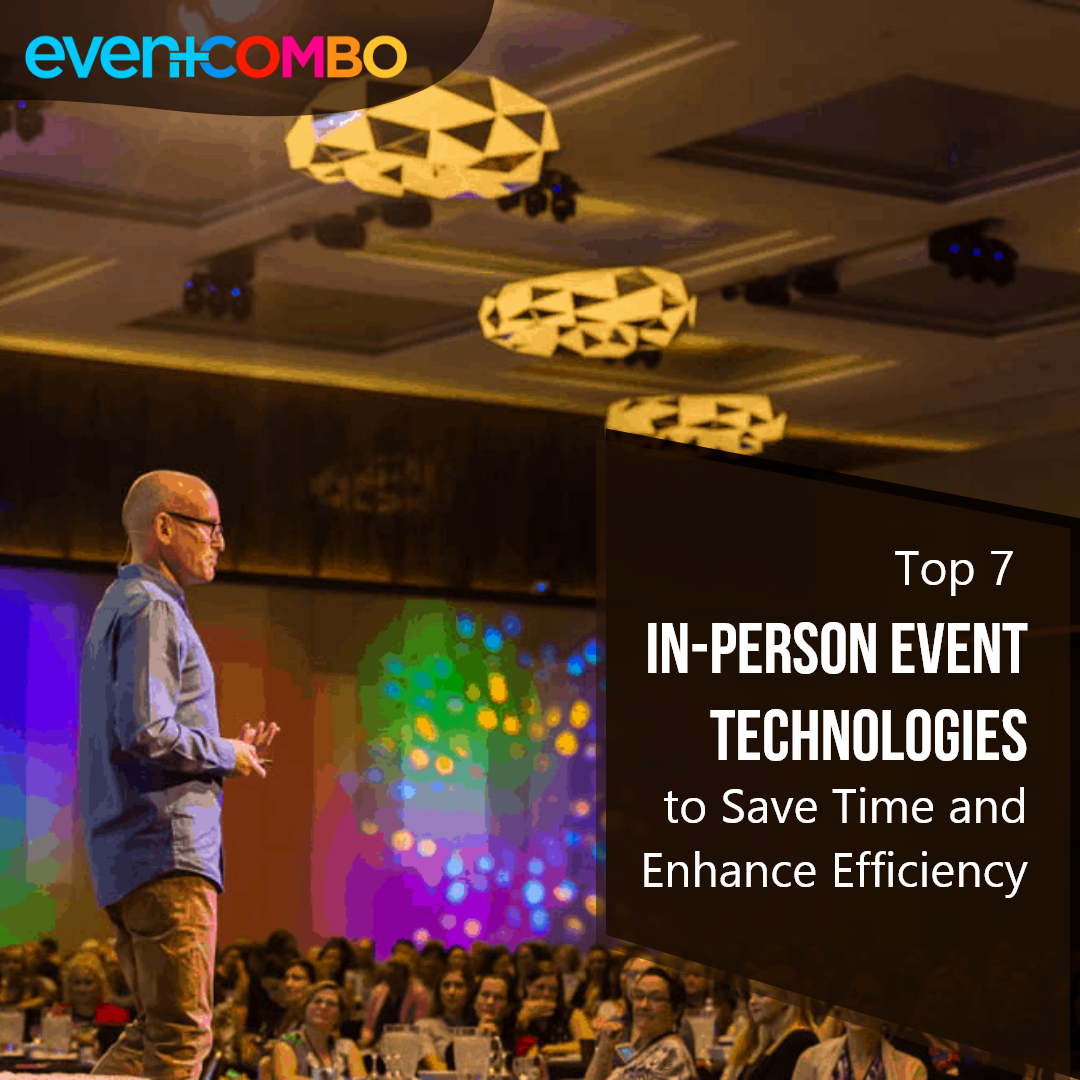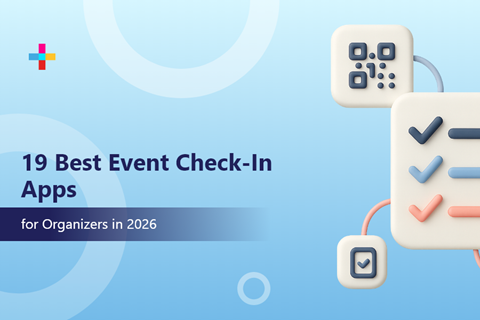

Event professionals continuously strive to streamline processes and enhance efficiency in dynamic and rapidly evolving world of events, where time management holds immense significance. From orchestrating seamless check-ins and coordinating engaging sessions to generating comprehensive reports, mastering time management is a key element in ensuring the success of any event. Luckily, the event industry is witnessing a transformative wave driven by technologies such as Artificial Intelligence (AI), digital realities, and many other groundbreaking innovations, which are reshaping the landscape of in-person events.
One significant aspect of leveraging innovative solutions is the ability to elevate the attendee experience. However, beyond enhancing attendee experience, event technologies are also making significant strides in optimizing time management during in-person events. These advancements provide event professionals with tools and solutions that streamline various operational aspects, saving valuable time and resources.
Additionally, the implementation of smart event management platforms and cloud-based solutions has revolutionized the planning and coordination process. These platforms enable real-time collaboration and communication among event teams, eliminating the need for lengthy email chains and ensuring everyone is on the same page. Through centralized dashboards, event professionals can efficiently manage tasks, schedules, and resources, reducing the potential for errors and time-consuming manual coordination.
In this blog, we will explore 7 key areas where technology can be leveraged to save time while enhancing the overall attendee experience.
1. Badging Optimization: When it comes to managing large-scale events, traditional manual badge creation can be a time-consuming task. Utilizing cutting-edge software and printing technologies, event badges can be customized, generated, and printed effortlessly. With features like barcode or QR code integration, organizers can enhance security and streamline check-ins, ensuring a smooth and efficient entry process for attendees. For example, at a large-scale conference, participants can simply present their digital badges on their smartphones for quick and hassle-free entry, cutting down on waiting times and improving overall efficiency.
2. Use of Kiosks: Implementing self-service kiosks at event registration areas can be a game-changer for event organizers. These interactive stations allow attendees to quickly locate their registration details, print their badges, and retrieve event-related information without the need for staff assistance. Kiosks aren’t mere traditional reception desks or information centers anymore. Not only does having self-operative Kiosks save time but they also provide a seamless experience for attendees, as they can navigate the event at their own pace. For instance, at a trade show, attendees can approach self-service kiosks strategically placed at the entrance to register themselves, print badges, and collect event brochures, reducing queues and minimizing wait times.
This level of automation streamlines the process, allowing event organizers to divert their workforce toward other critical aspects of event management.
3. Facial Recognition for Check-Ins: In recent years, facial recognition technology has made significant strides in various industries, and the events industry is no exception. Facial recognition systems enable quick and contactless check-ins, eliminating the need for physical tickets or badges. Attendees can simply walk up to a designated area equipped with facial recognition cameras, which can instantly identify and validate their identity. RFID (Radio Frequency Identification) technology is another efficient alternative that allows attendees to simply tap their RFID-enabled badges or wristbands at checkpoints. This technology not only saves time but also enhances security and improves the overall attendee experience. An example of this technology in action is at music festivals, where large crowds can be swiftly processed through these identification systems, reducing bottlenecks and ensuring a smooth entry into the event grounds.
4. Social Media Integration: In today's digital age, social media plays a pivotal role in event marketing and engagement. By integrating social media platforms into event management systems, organizers can save time and amplify their reach. Automated social media integration enables seamless sharing of event updates, registrations, and live updates, reducing manual effort while maximizing exposure and engagement. Attendees can easily share their experiences, generating buzz and attracting more participants. For instance, automated social media posting can share event updates, session highlights, and speaker information, thereby promoting the event and engaging attendees without manual intervention. Additionally, social media integration allows attendees to interact, network, and share experiences, enhancing the overall event experience.
5. Session Management: Managing multiple sessions, workshops, and presentations during an event can be a logistical nightmare without proper tools. Managing sessions and tracks during a multi-track conference can be challenging and time-consuming. Session management software provides a comprehensive solution, allowing organizers to efficiently schedule and track sessions, assign speakers, and manage attendee registrations. By automating these processes, event organizers can save valuable time and ensure a smooth flow of sessions, reducing confusion and enhancing overall attendee satisfaction.
However, the right event management software, enables organizers to easily schedule, modify, and communicate session details, ensuring that attendees have up-to-date information and simultaneously allowing attendees to access session details through event apps, reducing the need for printed schedules and saving valuable time.
6. Mobile Event App: A dedicated mobile event app, which is customized to fit into your event’s requirements is a powerful tool that can streamline various aspects of event management. By providing attendees with a centralized platform for registration, session selection, networking, and accessing event information, organizers can save time and ensure attendee experience remains in focus. With real-time updates and push notifications, event apps keep attendees informed and engaged, reducing the need for manual communication and on-site assistance. Attendees can access all these details on their smartphones, eliminating the need for physical event guides and increasing efficiency.
7. Event Landing Pages: Event landing pages serve as a digital gateway to an event, providing essential information and enticing attendees to register. With innovative features like customizable templates, online registration forms, and integration with ticketing platforms, event landing pages simplify the registration process and save time, and hyper-personalize the event for organizers. These pages can also act as a hub for event-related updates, schedules, and additional resources, reducing the need for manual dissemination of information. Creating an event landing page from scratch is time-consuming and expensive. Having an event page builder feature in your event management software provides a one-stop platform for potential attendees to learn about the event.
Time-saving technologies are vital to make sure your event management teams can focus more on attendees, seamless event flow, and other intellectual administrative actions.
Are you ready to take that leap for your next event? We can help you with it. Take a quick tour of our platform - https://bit.ly/3BX2tUO

Professional certifications for event planners do more than provide a solid foundation in the field; they offer valuable exposure to the dynamic world of event planning and insights from prominent industry experts.

Choosing the right event management platform is vital for event professionals navigating the growing demand for in person , virtual, and hybrid events. Modern planners need solutions that offer robust features,...

Attendees don't notice good check-in. They only notice bad check-in. And planners know check-in is the first moment where their behind-the-scenes work gets exposed.